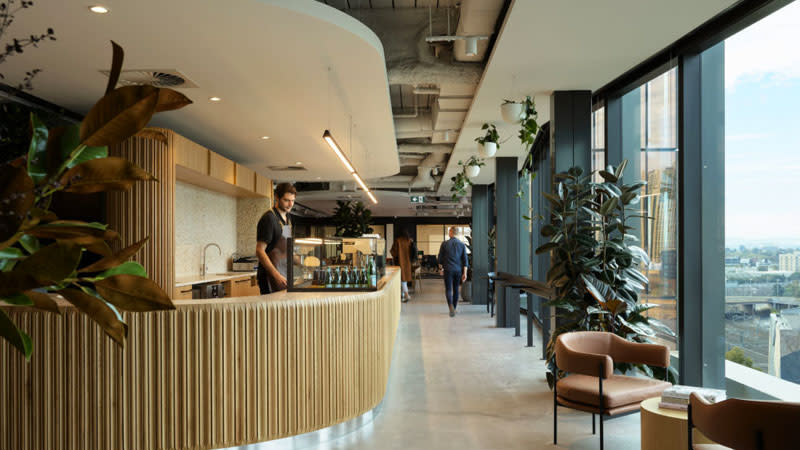[+] Work Flexibility Proving Office Sector’s Greatest Challenge
![[+] Smart, Green Offices ‘Will Bring Workers Back’](/_next/image?url=https%3A%2F%2Fimages.ctfassets.net%2F8pr762qjocl3%2F5eYbRIRSKOwP2tWUsLY45z%2F50d3e8a18710d4ca0012a267d1227e04%2FT_hero.jpg%3Fw%3D2000%26q%3D100&w=3840&q=100)
While leasing incentives have been the short-term solution for landlords to get businesses back into office towers, smart and green buildings might provide the encouragement needed for companies to sign up to new office space post-pandemic.
Speaking at Cushman and Wakefield’s Future of Cities seminar in Melbourne last week, the agency's head of business development for Europe, the Middle East and Africa, Andrew Phipps, delivered a keynote presentation on the lasting effects of the pandemic on CBDs and the way cities are likely to change through to 2040.
Phipps, who previously headed up research for Europe, the Middle East and Africa at CBRE, is also a futurist—specialising in the current and future needs of the global commercial property industry.
Among issues canvassed by Phipps, the challenge of building sustainably while also delivering smart and future-proofed workplaces resonated with attendees.
“The big thing that has changed during the past two years is that people are now more thoughtful and considered in the way they are using office space,” Phipps told The Urban Developer.
“Work is now something you do rather than a place that you go and the office has become incredibly important in defining what the brand and culture of a business.
“Businesses now are spending a lot more time and energy using the office to both attract talent and to retain people.”

The office sector and employers have struggled to come to terms with the modern, happier, healthier and wealthier laptop-wielding workforce embracing work-from-home initiatives throughout 2022.
Proponents of the work-from-home phenomenon believe the world has changed and lockdowns simply exposed a need for more flexibility and converted an average of 200 hours a year of commuting into well-deserved leisure time.
Phipps said that while work-from-home had provided benefits there had also been loss of productivity, collaboration through an exchange of energy, enthusiasm and ideas, and human connection with staff away from a centralised office.
TUD+ Member Only Content
Get the full story.
Become a TUD+ member to unlock this article, plus exclusive analysis and member-only events and webinars.
You'll return here after signing up.















